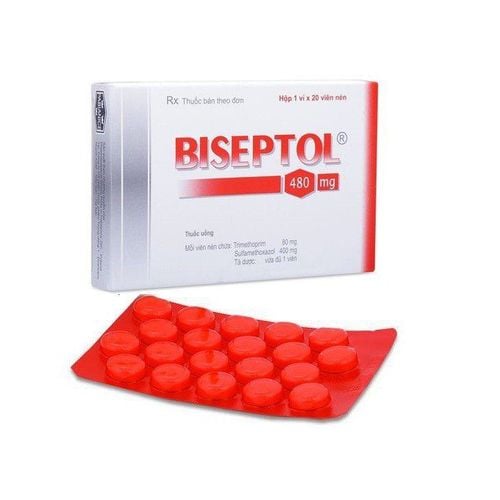This is an automatically translated article.
Parepemic medicine 2mg has the main active ingredient Loperamide and other excipients in a sufficient amount. The drug is effective in the symptomatic treatment of acute diarrhea in adults and children 12 years of age and older.
1. What is Parepemic 2mg?
Drug group: Medicines for treating diseases of the digestive tract Dosage form: Parepemic 2mg is made in capsule form Packing: Box of 10 blisters x 10 capsules Main ingredient is Loperamide active ingredient with high content. 2mg
1.1. Pharmacodynamics of the drug Parepemic 2mg Active ingredient Loperamide is an active ingredient that binds to opiate receptors in the intestinal wall. Since then, the drug has the effect of reducing mucosal irritation and stimulating gastrointestinal spasm. Therefore, the drug that reduces intestinal motility pushes forward, prolonging the circulation time in the intestinal lumen. Active ingredient Loperamide increases the tone of the anal sphincter thus reducing the urgency in the defecation reflex when uncontrolled. Because Parepemic 2mg has high affinity for the intestine and is metabolized mainly in the first pass through the liver, it is difficult to reach the systemic circulation. Loperamide causes inhibition of intestinal motility due to its direct peripheral effect on the intestinal wall. The use of Parepemic 2mg drug helps to treat acute and chronic diarrhea symptoms, increase circulation and absorption time in people after ileostomy surgery. 1.2. Pharmacokinetics of Parepemic 2mg Pharmacokinetics Loperamide is readily absorbed from the intestine but is largely filtered and metabolised by the liver to an inactive metabolite. The drug is excreted in the faeces and urine both unchanged and metabolized. The concentration of drug excreted in milk is very low. Loperamide is about 97% bound to plasma proteins. The half-life of the active ingredient Loperamide in humans ranges from 9 to 14 hours. The drug is eliminated mainly in the feces. 1.3. The effect of the drug Parepemic 2mg Pharmacology Loperamide is a medicine for acute diarrhea of unknown etiology and some chronic diarrhea conditions. This is a synthetic form of opiate that, in usual therapeutic doses, has little effect on the central nervous system. Loperamide causes decreased intestinal motility, decreased gastrointestinal secretions and increased anal sphincter tone. Therefore, the drug Parepemic 2mg also has the effect of prolonging the transit time through the intestine, increasing the transport of fluids and electrolytes, and reducing the amount of stool. This effect is probably related to the decrease in Acetylcholine and Prostaglandin release.
2. What does Parepemic 2mg do?
Reduces signs and symptoms associated with acute nonspecific diarrhea, chronic diarrhea caused by intestinal inflammation. Reducing stool volume in people who have had an ileostomy. Symptomatic treatment of acute diarrhea in adults and children 12 years of age and older Symptomatic treatment of acute episodes of diarrhea associated with irritable bowel syndrome in adults 18 years of age and older is under medical supervision. primary diagnostician.
3. Usage and therapeutic dose of Parepemic 2mg
3.1. Usage of the drug Parepemic 2mg is prepared in the form of capsules, suitable for oral use.
3.2. Dosage of the drug Treatment of acute diarrhea:
Adults: the initial therapeutic dose is 4 mg, then 2 mg after each loose stool, up to 16 mg/day; Children: the first day 8 to 12 years of age the therapeutic dose is 2 mg 3 times a day; children from 6 to 8 years old: 2 mg 2 times a day; From the second day: 1mg/10kg after each loose stool, the total daily dose should not exceed the dose of the first day. Treatment of chronic diarrhea:
Adults: treatment dose is 4 - 8 mg/day once or divided into several times; Children: not yet studied.
4. In case of overdose of Parepemic 2mg
Symptoms of overdose Parepemic 2mg include overdose due to liver dysfunction ; CNS depression including somnolence, motor dysfunction, muscle gain, miosis, and respiratory depression. Besides, people using the drug overdose may experience constipation, urinary retention and intestinal obstruction.
Treatment of overdose: The doctor will prescribe ECG monitoring in case of prolongation of the QT interval. Central nervous system depression caused by drug overdose, Naloxone can be used as an antidote. Because the duration of action of the active ingredient Loperamide is longer than that of Naloxone (1 to 3 hours), close monitoring of the patient is required and repeat therapy with Naloxone may be indicated. Overdose users should be closely monitored for at least 48 hours for possible signs of CNS depression...
5. Undesirable effects of the drug Parepemic 2mg
Hypersensitivity Reactions: Generally quite rare including erythema, urticaria extremely rarely, anaphylaxis, toxic epidermal necrolysis occurring only in susceptible individuals. particularly sensitive to drugs.
When using Parepemic 2mg, there may also be pain or discomfort in the abdomen, nausea and vomiting, fatigue, drowsiness or dizziness, dry mouth. However, these symptoms are difficult to distinguish from the signs and symptoms associated with the diarrheal syndrome.
6. Interactions of the drug Parepemic 2mg
When Parepemic 2 mg (16 mg single dose) was used concomitantly with drugs of the Quinidine class, or Ritonavir, both of which inhibit P-glycoprotein, a 2- to 3-fold increase in loperamide plasma concentrations was observed. Co-administration of Parepemic 2mg (dose of 4mg) and Itraconazole, increases the plasma concentration of Loperamide 3-4 times. The combination of the two active ingredients, Itraconazole and Gemfibrozil, causes a 4-fold increase in Loperamide plasma concentrations than peak Loperamide plasma concentrations and a 13-fold increase in Loperamide plasma concentrations. Concomitant administration of the active ingredient Loperamide (single dose 16 mg) and the drug Ketoconazole (an inhibitor of CYP3A4 and P-glycoprotein), increased the plasma concentration of Loperamide by 5-fold.
7. Some notes when using Parepemic 2mg
7.1. Contraindications of the drug Parepemic 2mg Do not use Parepemic 2mg with children under 12 years old and the elderly. Parepemic 2mg should not be used in people with acute ulcerative colitis or pseudomembranous colitis caused by broad-spectrum antibiotics. People with acute dysentery, characterized by blood in the stool and high fever. Patients with acute ulcerative colitis. People with invasive bacterial enteritis. Things that cause inhibition of intestinal motility should be avoided. Treatment must be discontinued as soon as signs of intestinal obstruction, constipation, abdominal distension appear. People who are sensitive or hypersensitive to the ingredients of the drug. People are suffering from acute diarrhea caused by bacteria capable of penetrating deep into the intestinal mucosa such as E. coli, Salmonella, Shigella. People with severe liver failure. 7.2. Precautions while using the drug Dehydration and electrolytes often occur in people with diarrhea, this is especially important in young children and the elderly, the use of active ingredient Loperamide does not replace therapy with water and other substances. Electrolytes. Treatment of diarrhea with Parepemic 2mg is symptomatic only. Whenever the cause can be identified, specific treatment should be appropriate. Persistent diarrhea can be a sign of serious illness. Parepemic 2mg should not be treated for a long time, until the cause of the diarrhea is determined. Use with caution in immunocompromised patients with AIDS, stop treatment when there are signs of abdominal distension. The drug should be used with caution in some people with acute ulcerative colitis. At the same time, you need to stop taking the drug as soon as you notice an enlarged abdomen, constipation or paralytic ileus. Doctors diagnose and treat signs of acute diarrhea associated with irritable bowel syndrome with products containing Loperamide, if symptoms do not subside after 48 hours, stop using Parepemic 2mg. If diarrhea symptoms change or episodes of diarrhea repeat in 2 weeks, the patient should inform the treating doctor. Effects of the drug on the driver and the operator: When using Parepemic 2mg for diarrhea can cause loss of consciousness, depression, fatigue, dizziness or drowsiness. Therefore, you should exercise caution when driving or operating machinery. Pregnancy: Safety in human pregnancy has not been established with the use of this medicine. Therefore, patients should not use Parepemic 2mg during pregnancy, especially in the first trimester. Lactation: Small amounts of the active ingredient Loperamide may appear in breast milk. Treatment with Parepemic 2mg during lactation is not recommended. Parepemic 2mg has the active ingredient Loperamide and other excipients in sufficient quantities. The drug is effective in the symptomatic treatment of acute diarrhea in adults and children 12 years of age and older. To ensure the effectiveness of treatment, patients need to take medicine according to prescription or consult a doctor, professional pharmacist.
Follow Vinmec International General Hospital website to get more health, nutrition and beauty information to protect the health of yourself and your loved ones in your family.
Please dial HOTLINE for more information or register for an appointment HERE. Download MyVinmec app to make appointments faster and to manage your bookings easily.













